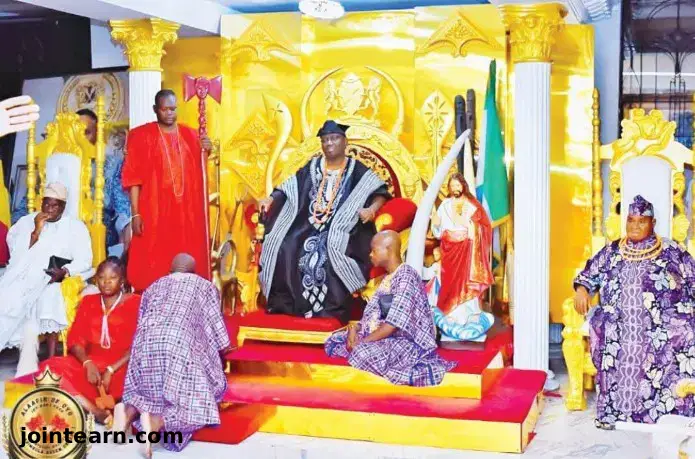
In Oyo, the Alaafin — once regarded as a semi-god and supreme monarch — is still held in high reverence, with traditions that reflect both spiritual and political caution. One such tradition involves the seating of the Alaafin on his throne.
The Seating Ritual
Before the Alaafin sits:
- A trusted aide, usually the Otun Efa, occupies the throne first.
- The king’s attendants shield him with his flowing agbada, preventing the public from seeing him as he takes his seat.
The aide is traditionally fortified with charms and incantations, performing rituals to purify and safeguard the throne from any physical or spiritual harm — such as poison or malevolent charms. This precaution is both spiritual and security-focused, ensuring the monarch’s safety.
Role of Iyamode
Historically, the Iyamode, leader of palace women, also had the authority to occupy the seat before the Alaafin. She performed purification rites and acted as a spiritual intermediary, reinforcing the sacredness of the throne.
Origins of the Tradition
This custom stems from the Oyo Empire’s political and religious system (16th–18th centuries), where the Alaafin served as both ruler and high priest, but was bound by spiritual laws and councils of chiefs. Rituals before sitting, eating, or speaking acknowledged the presence of gods and ancestors.
Significance
- Spiritual Protection: Safeguards against unseen forces or attacks.
- Symbolic Check: Reinforces humility, accountability, and the sacred bond between the king and his people.
- Unique to Oyo: Unlike other Yoruba kingdoms, where only guards protect the throne, in Oyo someone physically sits first as part of the ritual.
Exceptions
At certain events, such as attending another dignitary’s function, the Alaafin may sit without this ritual. For example, Oba Abimbola Owoade recently sat at the 91st birthday of Esama of Benin without the usual protocol, respecting the host’s prominence.
Cultural Interpretation
Anthropologists and locals view the ritual as a reflection of Yoruba values — acknowledging unseen forces, humility, and the interconnectedness of power, spirituality, and tradition.


Leave a Reply